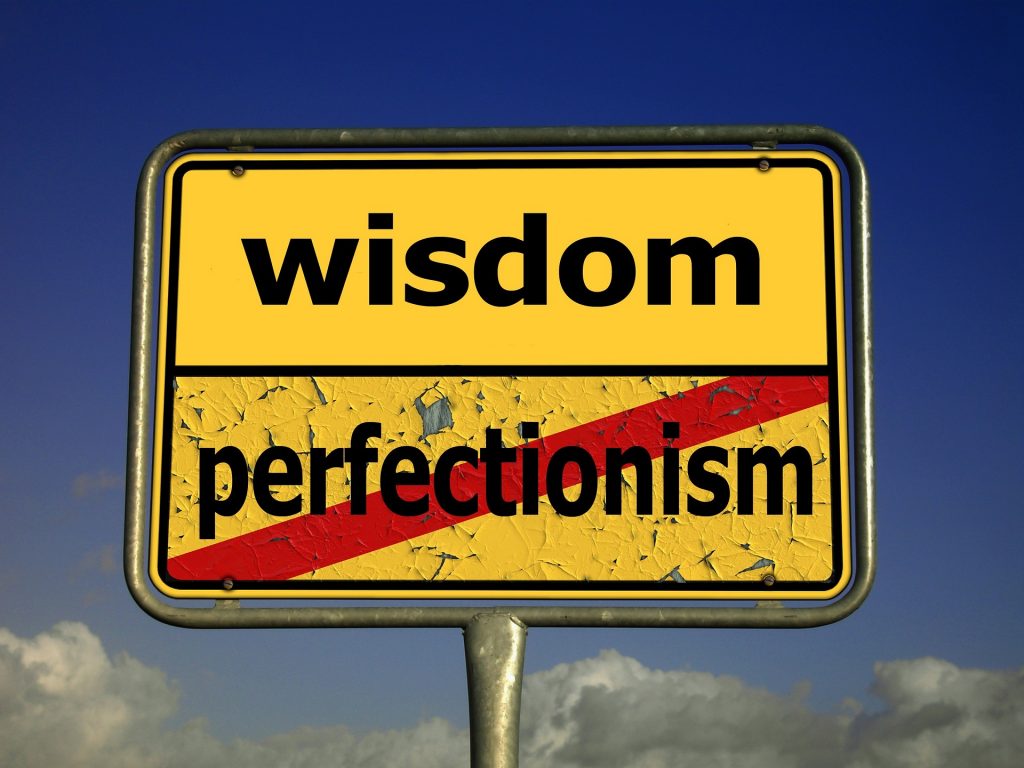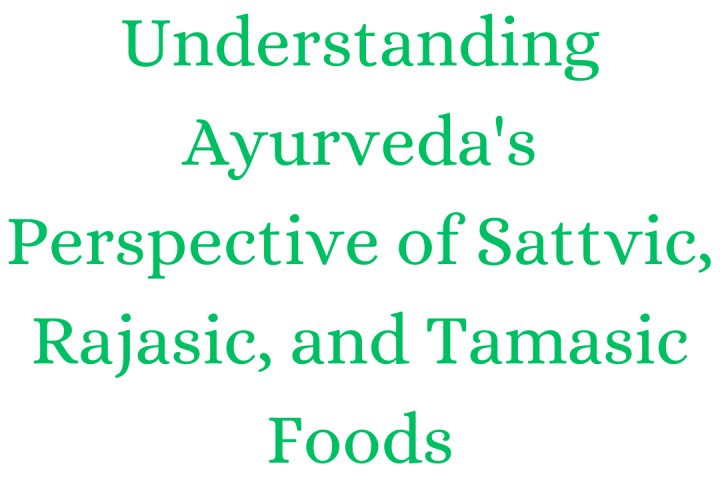Have you ever paid attention to what you usually “feed” your mind every day? Just like your body needs a balanced diet to function at its best, your mind requires “healthy” intakes to operate efficiently as well.
Unfortunately, in today’s fast-paced and constantly connected world, we are often exposed to “mental junk foods” that can undermine our mental well-being. Such kind of toxins are readily available, appealing, and packaged in a way that makes them alluring, but they provide little to no nourishment to our minds and even trigger negative thoughts, emotions, and behaviors.
In this article, we will explore the top 10 mental junk foods that you should avoid for a better life by delving into the downsides of each type of mental junk food and suggesting healthier alternatives that might help to foster personal development. Therefore, if you are interested in improving your mental health and leading a more fulfilling life, sit back, and get ready to give your mind the “nourishment” it deserves!
1. The 1st Mental Junk Food: Passive Social Media Usage
Have you ever found yourself lost in the endless stream of social media content, unsure of why you’re even scrolling? While social media has entirely revolutionized how we connect with people and stay informed, it can also exert several undesirable impacts on our mental health.
Research has shown that excessive use of social networking platforms can lead to harmful psychological effects, such as envy, jealousy, distorted beliefs, and an insatiable desire for attention and validation.
This can result in the development of abnormal or eccentric thought patterns and impulsive inclinations, ultimately resulting in harm to our real-life relationships.

To break free from this cycle, we need to shift our focus from mindless scrolling to building meaningful interpersonal connections. The benefits are twofold: not only can cultivating strong connections with our loved ones enhance our self-growth and personal development, but it can also provide us with a sense of purpose and fulfillment that social media cannot replicate. Therefore, let’s take a step back from social media and spend quality time with the people who matter most to us. By doing so, we can preserve our mental well-being and achieve greater life satisfaction.
2. The 2nd Mental Junk Food: Mindless Television Programs
Similar to how junk food is detrimental to our physical health, watching TV shows that offer no intellectual or emotional value can be a waste of time and contribute to a sedentary lifestyle. According to a 2015 NPR Health study, excessive exposure to mindless TV shows can significantly impair our cognitive function, resulting in reduced brainpower and feelings of boredom and apathy.

Instead, we need to seek out and solely follow a few meaningful TV shows that provide enjoyable and healthy entertainment while simultaneously enabling us to acquire new skills.
By selecting informative, engaging, and thought-provoking programs, we can enhance our cognitive abilities and expand our knowledge in a way that is both productive and enjoyable. Furthermore, meaningful TV shows can provide value for us to not only take a break from daily stressors but also gain new insights and perspectives on various topics, thereby enabling us to maintain our cognitive abilities as well as lead a more fulfilling and productive life.
3. The 3rd Mental Junk Food: Negative News Consumption
In the era of information overload, the media landscape is often inundated with distressing news. As a result, we are bombarded with a constant flow of negative information, which can be like poison to our emotional state. Consuming too much negativity in this way can leave us feeling drained, skeptical, and on edge let alone the long-term consequences it can have on our overall well-being.

However, why subject ourselves to this mental torture when there’s a better way? Imagine turning on the news and feeling informed and inspired at the same time, rather than anxious and depressed. By searching out for alternative news sources that provide insightful and informative updates, we are bound to shift our focus to the good things happening around the world. By doing so, we can effectively protect our mental health and cultivate a more positive outlook on life.

Remember, you have the power to control what you consume. By being intentional about the news sources you choose to follow, you can protect your mental health and cultivate a more positive outlook on life. So the next time you find yourself feeling overwhelmed by the constant stream of negativity in the news, take a step back and consider seeking out a more balanced and informative source. Your mental health will thank you for it, and you may even find that your overall well-being improves as a result.
4. The 4th Mental Junk Food: The Overthinking Conundrum

If you find yourself feeling overwhelmed and anxious due to constant overthinking, bear in mind that this habit can be incredibly damaging to your emotional well being and hold you back from reaching your full potential. But do not despair – there are actionable remedies to conquer your negative thoughts and emotions as well as develop a mindset that empowers you to overcome any obstacle that comes your way. It’s time to take charge of your mental health and reclaim your vitality.
One approach to achieving this is by training your mind to remove and overcome negative overthinking. This involves challenging any self-assumptions you may be making and practicing mindfulness techniques like meditation or deep breathing exercises. By becoming increasingly aware of your thoughts and emotions, you might learn to observe them without judgment and avoid getting caught up in overthinking.
Another important aspect of managing negative overthinking is to limit your exposure to triggers that can lead to it, such as social media or news articles. Instead, focus on activities that bring you joy and relaxation, like exercise or spending time with loved ones. Seeking support from a therapist or counselor can also provide you with personalized tools and techniques to help you break free from the cycle of negative overthinking and develop a more positive mindset. For more tips on overcoming negative emotions and thoughts, refer to the resources provided.
Read our other article on some methods that can help getting rid of negative thoughts
5. The 5th Mental Junk Food: Gossip
Gossip can be a tempting habit to fall into, especially when we are feeling bored, insecure, or disconnected from others. Nonetheless, the damaging effects of this behavior go far beyond the momentary satisfaction it may bring as it can erode trust and respect within our social circles, ultimately leaving us feeling isolated and unfulfilled.

To break free from this pattern, it is essential to put emphasis on relationships that are based on mutual support, understanding, and growth. By adopting a perspective of empathy and intuition in our interactions with others, we can become better equipped to recognize their distinct strengths and weaknesses. This allows us and our connections to prioritize the complementary qualities of one another, allowing us to form relationships that support our growth and development while also addressing our weaknesses.
6. The 6th Mental Junk Food: Rumors
Rumors, like gossip, can be alluring, tempting us to believe and share them for the excitement and drama they offer. This type of communication can manifest itself in both verbal and non-verbal forms and is typically spread from person to person. They are characterized by unverified information that can impact the beliefs, attitudes, and behaviors of those who receive them.

The impact of rumors can be far-reaching and detrimental to individuals and society as a whole since they tend to evoke feelings of fear, anxiety, and distrust among those exposed to them. Furthermore, rumors can seriously harm the reputation of individuals or groups, as well as trigger divisions and conflicts within society.

They can also spread misinformation, which can have severe consequences, esp. in situations where accurate information is crucial. Additionally, rumors can be used as a powerful tool to manipulate and control individuals and groups, making them an effective strategy for those seeking to influence public opinion or gain political power.
To mitigate the negative impact of rumors, it is essential to develop critical thinking skills and prioritize evidence-based communication. This may involve fact-checking and validating information before sharing, seeking out diverse sources of information, and engaging in constructive and respectful dialogue with others. As a result, the spread of rumors can be efficiently curbed whilst fostering a sense of mutual support amongst the community.
7. The 7th Mental Junk Food: Fear
Irrational phobias might serve as a significant impediment to our personal growth and development. Whether it is a fear of failure, rejection, or an imaginary scenario, it can hold us back from reaching our full potential.

To overcome this, it is important to train our minds to remove unnecessary fear and to face realities with maturity. This can involve cultivating mindfulness and self-awareness, challenging negative thoughts and beliefs, and seeking support from trustworthy individuals or professionals.
By addressing our own phobias and developing a more rational mindset through the above steps, we can not only overcome personal barriers but also become more critical consumers of information. This can help us to better distinguish between fact and fiction, and to resist the influence of rumors and false information. In turn, this can contribute to a more informed and resilient society, better equipped to face the challenges of the modern world.
8. The 8th Mental Junk Food: Negative Self-Talk
Harmful self-talk can have a detrimental effect on an individual’s self-confidence and motivation. Such a habit may stem from toxic relationships such as critical partners, unsupportive friends, or toxic work environments.
To combat this, it is advisable for us to practice positive self-talk by identifying and challenging negative thoughts, and replacing them with supportive and positive statements. In this way, we are able to strengthen our self-esteem, hence pursuing our goals with greater confidence and motivation.
In addition to practicing positive self-talk, we should also prioritize developing healthy connections with supportive individuals. These two approaches might work together to foster a positive and growth-oriented mindset, enabling us to avoid the negative influences of unhealthy connections. While positive self-talk allows individuals to challenge and reframe negative thoughts, helpful relationships provide the emotional support and encouragement needed to develop resilience and overcome setbacks. Therefore, by adopting both approaches, individuals can improve their mental and emotional well-being, leading to greater confidence, motivation, and personal fulfillment.
9. The 9th Mental Junk Food: Self-Doubt
Self-doubt can be a significant obstacle in the pursuit of personal and professional growth. It often arises from a lack of confidence in our abilities or a fear of failure, leading to inaction or sub-optimal performance.

However, self-doubt can be overcome by shifting our focus to our strengths and achievements while fostering a growth-oriented mindset. We can also find inspiration from others who have faced similar challenges and succeeded through perseverance and determination.
Indeed, reading motivating books and stories is an effective method to provide our body with the necessary mental nourishment to fuel personal growth. This practice offers valuable insights into the experiences of successful individuals who have overcome obstacles, providing encouragement and motivation. Besides, engaging in self-reflection activities such as journaling, meditation, or exercise can help build self-awareness and resilience, enabling us to approach challenges with greater self-confidence.
Building a support system of positive peers and mentors is also crucial in conquering self-doubt. Such a network can offer us prompt encouragement, useful guidance, and constructive advice to surpass challenges and develop a growth mindset. By doing so, we are bound to cultivate greater emotional and mental resilience, hence overcoming self-doubt and attaining a more fulfilling life.
10. The 10th Mental Junk Food: Perfectionism
The obsessive pursuit of perfection can be a double-edged sword, not only motivating us to maximize our potential but also leading to feelings of inadequacy and self-criticism when goals are not met.

When individuals become obsessed with striving for excellence and achieving unrealistic goals, they may experience heightened levels of tension and anxiety, hence physical and mental exhaustion.

To avoid falling into such a burnout trap, it is crucial to be realistic in our expectations of ourselves and others while still giving our best efforts. This involves practicing self-compassion and reframing mistakes as opportunities for growth and learning rather than sources of shame or failure. By focusing on progress rather than perfection, we can evidently achieve a greater sense of satisfaction and motivation in our pursuits of goals, as well as greater resilience in the face of setbacks or challenges. That is to say, embracing our flaws and imperfections can pave the way for a more satisfying and harmonious existence, enabling us to enjoy more happiness, deeper relationships, and greater achievements.
Final Recap: Synthesizing of key ideas
As we constantly navigate through the ups and downs in life, it is instrumental for us to be mindful of the content we allow into our minds. Given the strong interdependence of our thoughts, emotions, and actions, it is concerning to observe that many of us expose our minds to negative and toxic influences that not only harm our mental health but also undermine our general sense of happiness and fulfillment.
Therefore, by prioritizing personal growth and self-care, as well as building meaningful relationships, we can create a life enriched with positivity, meaning, and satisfaction. It is also advisable to seek out nourishing mental stimuli intentionally while avoiding negative influences that can hinder our progress toward reaching our full potential.
Remember, just as our physical bodies require a balanced diet to function optimally, our minds also need healthy mental equivalents to thrive. Let’s start feeding our minds with nourishing and uplifting content that can inspire and motivate us to reach our full potential and live a more fulfilling life. By making a conscious effort to consume healthy mental intakes, such as self-help books, inspiring podcasts, and positive social media accounts, we can cultivate a mindset of growth and progress. Remember, the quality of our thoughts and beliefs has a significant impact on our emotions, behavior, and overall well-being.
On the whole, be mindful of what you ‘feed’ your mind and strive to nourish it with the best possible mental diet to achieve success and fulfillment in every aspect of life!






